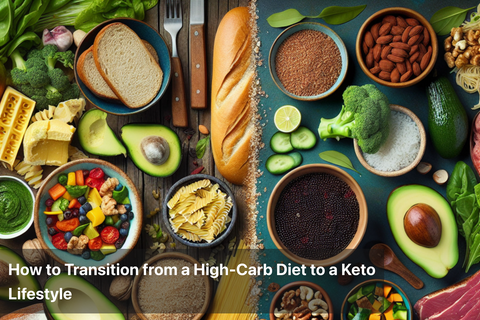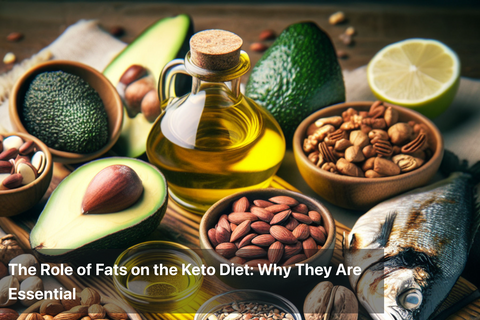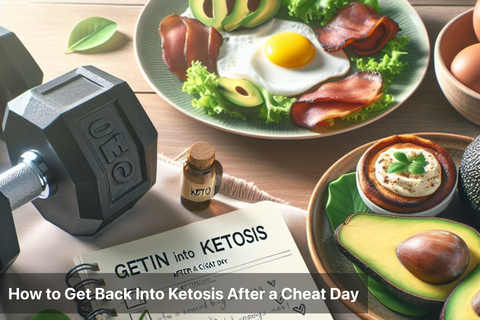
Keto for Athletes: How Ketosis Affects Performance and Endurance
Athletes constantly seek ways to optimize performance, enhance endurance, and improve recovery. While traditional sports nutrition has long favored high-carbohydrate diets for energy, the ketogenic diet has emerged as a compelling alternative, especially for endurance athletes and those engaged in long-duration training. The keto diet alters the body’s metabolic pathway by shifting reliance from carbohydrates to fat as the primary fuel source. For athletes, this shift can lead to more stable energy levels, improved fat oxidation, and reduced inflammation.
Understanding how ketosis impacts athletic performance requires a closer examination of the metabolic processes involved, the types of athletes who may benefit, and the possible challenges faced during the transition.
How Ketosis Works in the Athletic Body
The human body stores a limited amount of glycogen (carbohydrate reserves) in the liver and muscles. These stores can be quickly depleted during prolonged exercise. Once glycogen is used up, athletes relying on carbs may experience fatigue or "hitting the wall."
In contrast, the body has vast fat reserves, even in lean individuals. When in ketosis, the body efficiently taps into these reserves for sustained energy. This metabolic switch enhances fat oxidation, which is especially useful for endurance athletes engaged in activities like long-distance running, cycling, and swimming.
By relying on fat and ketones rather than glycogen, athletes can experience:
Reduced dependency on frequent carb refueling
Greater metabolic flexibility
Stable energy over longer periods
Fewer gastrointestinal issues often caused by high-carb energy gels or drinks
Athletic Benefits of the Ketogenic Diet
1. Improved Endurance Performance
For long-distance athletes, the ability to access fat for energy becomes a competitive advantage. In a state of ketosis, athletes report increased stamina and less need for mid-event fueling, reducing the risk of energy crashes or digestive distress.
2. Better Recovery and Reduced Inflammation
Ketosis may reduce post-exercise inflammation and oxidative stress. This promotes faster recovery and may decrease muscle soreness, allowing for more frequent or intense training sessions.
3. Stable Blood Sugar and Mental Clarity
Blood sugar fluctuations can impair mental focus and physical coordination. Ketosis provides a steady fuel source, helping athletes maintain concentration during competition and long training bouts.
4. Lean Muscle Retention
With adequate protein intake and resistance training, athletes can preserve or even build lean muscle mass while on keto. The diet’s muscle-sparing nature is beneficial during cutting phases or for sports with weight classes.
Transitioning into Ketosis: Adaptation Phase and Symptoms
The transition into ketosis, often referred to as the keto adaptation phase, can pose initial challenges. This period typically lasts from a few days to a couple of weeks, during which the body shifts from glucose to fat metabolism.
Common symptoms during this phase, sometimes called the “keto flu,” include:
Fatigue and low energy
Headaches
Dizziness or lightheadedness
Muscle cramps
Irritability
Brain fog
These symptoms result from electrolyte imbalance, dehydration, and the drop in glycogen stores. Increasing water intake, supplementing with electrolytes (sodium, potassium, magnesium), and ensuring adequate rest can ease the adaptation process.
Strength and High-Intensity Training: Is Keto a Fit?
While endurance athletes often thrive on keto, strength-based or high-intensity athletes may face more nuanced outcomes. Sports that rely heavily on explosive movements—like sprinting, weightlifting, or CrossFit—typically use anaerobic metabolism, which relies on glycogen.
In some cases, performance in these areas may temporarily decline during the keto adaptation phase. However, trained athletes often regain and even surpass previous levels once fully adapted, especially when protein intake and training are optimized.
For athletes in these sports, a targeted ketogenic diet (TKD) or cyclical ketogenic diet (CKD) may be more suitable:
TKD: Allows for small carbohydrate intake around workouts to replenish glycogen without fully exiting ketosis.
CKD: Involves periods of higher-carb refeeding (e.g., one or two days per week) to restore glycogen and support intense training phases.
Key Considerations for Athletes on Keto
1. Macronutrient Precision
Athletes need to carefully balance fat, protein, and carbohydrates. Too much protein can kick the body out of ketosis, while too few carbs may impair anaerobic performance. Individual experimentation is crucial.
2. Micronutrient Support
Electrolytes are essential, especially during the adaptation phase. Supplementing with magnesium, potassium, and sodium can prevent fatigue, cramps, and dehydration.
3. Recovery Nutrition
Post-workout meals should include quality proteins and fats to support muscle repair. Foods like eggs, avocados, fatty fish, and keto-friendly protein shakes work well.
4. Quality of Fats
Focus on whole-food fat sources like nuts, seeds, coconut oil, olive oil, and ghee. Avoid processed trans fats or low-quality oils.
Supporting Keto with the Right Foods
Category |
Food |
Benefits for Athletes |
|---|---|---|
High-Quality Fats |
Avocados |
Rich in potassium and heart-healthy fats |
|
Extra virgin olive oil |
Anti-inflammatory, great for dressings or cooking |
|
Coconut oil / MCT oil |
Rapid source of energy, boosts ketone levels |
|
Ghee (clarified butter) |
High smoke point, rich in fat-soluble vitamins |
|
Nuts & seeds (almonds, chia, flax) |
Fiber, omega-3s, protein support |
Protein Sources |
Eggs (whole) |
Complete protein, rich in choline and healthy fats |
|
Fatty fish (salmon, sardines, mackerel) |
Omega-3s for recovery, heart health, and brain function |
|
Chicken thighs / turkey |
Lean protein with fats for sustained energy |
|
Grass-fed beef or lamb |
Iron, B12, zinc—supports muscle repair and strength |
|
Whey or plant-based protein isolate (low-carb) |
Muscle recovery post-training |
Low-Carb Veggies |
Spinach, kale, broccoli, cauliflower |
Antioxidants, fiber, vitamins—support recovery and immunity |
|
Zucchini, cucumber, bell peppers |
Hydration, vitamin C, crunch with low carbs |
|
Mushrooms |
Adaptogenic support, immune health |
Performance Boosters |
MCT oil powder / exogenous ketones |
Boost endurance and mental clarity pre-workout |
|
Pickles / Olives |
Natural electrolytes for hydration |
|
Bone broth |
Collagen + electrolytes, ideal for recovery and gut health |
Lofoods Special |
Low-carb bread & tortillas |
Convenient base for meals and pre/post-training nutrition |
|
Keto snacks (cookies, namkeen, chips) |
On-the-go fuel with clean ingredients |
|
Keto atta (flour) |
For low-carb homemade rotis, dosas, or pancakes |
|
Keto sweeteners (erythritol, stevia blends) |
Guilt-free sweetening with zero sugar spike |
Summary
The ketogenic diet has emerged as a powerful nutritional strategy for athletes seeking enhanced endurance, stable energy, improved recovery, and metabolic efficiency. While it may not be universally ideal for all athletic disciplines, those in endurance sports or looking for long-term body composition changes often benefit the most.
The transition to keto demands patience, careful planning, and attention to nutrition. With time, many athletes find they can perform at high levels with less reliance on carbohydrates, fewer energy crashes, and more control over body composition. Combined with keto-friendly resources like those available at Lofoods, maintaining peak performance while in ketosis becomes not only possible but sustainable.
This Blog post is an initiative by Lo! Foods, to provide accurate and Nutritionist / Doctor approved information related to Health. Lo! Foods is India's leading brand for Everyday Functional Foods. Foods designed for specific Health conditions or Needs. Lo! Foods also runs India's largest range of Low Carb Healthy Cloud Kitchens, under the brand names of Lo!, ProteinChef, ATH (All Things Healthy) and DiabeSmart.















Leave a comment
Your email address will not be published.